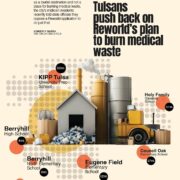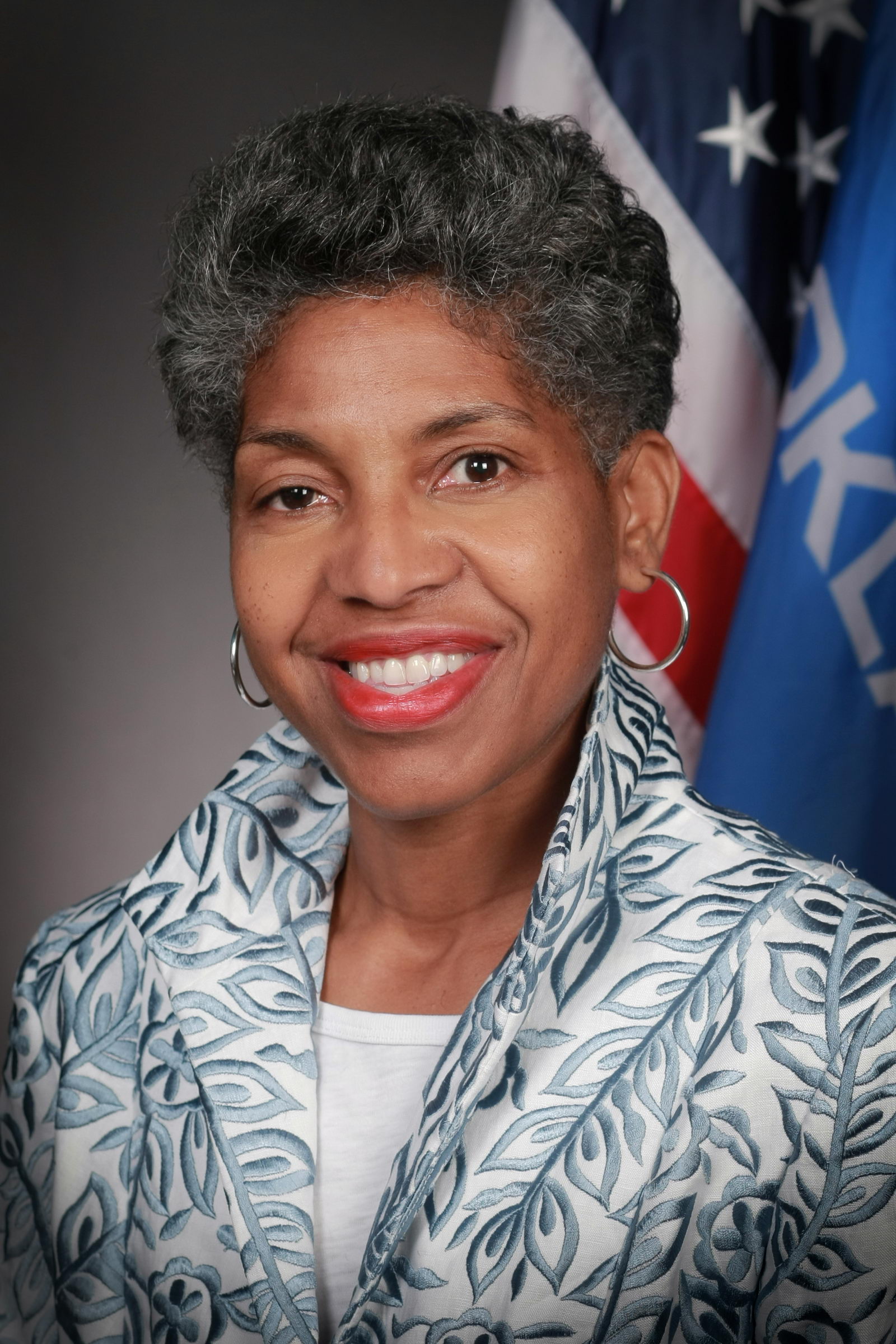
By Sherry Laskey
Eagle Guest Writer
This weekend a group of students from The University of Oklahoma, Oklahoma State University, The University of Arkansas and Booker T. Washington H.S., participated in the creation of an urban farm near Pilgrim Rest Baptist Church in Tulsa north. There were also volunteers from First Baptist Church. This idea has been on the minds of many in the community as a way to address food insecurity. But has yet to come to fruition due to the large undertaking it takes to create a large farm operation from the ground up.
So in the meantime a new non-profit entity (Community Health Empowerment Project, Inc.) has taken on the challenge in collaboration with a community organization and a group of local pastors to start “Liberation Urban Farms”. There are five churches and one community organization participating in the project: Pilgrim Rest Baptist Church, Gilcrease Hills Baptist Church, Concord Community Baptist Church, the Dream Center, and Amen Amakhu Life Institute.
The concept is that any church and community organization with access to land and vacant lots may address food insecurity in the community on a grassroot level. The idea is to grow food collectively for their congregation for those who want it, offer locally grown produce to the community, and empower community members who want to earn and learn how to grow food.
Just last week, WalletHub ranked Oklahoma nineteenth for the highest levels of obesity in the country. By now everyone in the City of Tulsa knows the reasons for the ranking. Certain zip codes have less than remarkable health outcomes as it relates life expectancy. Obesity is directly correlated to a higher risk for cardiovascular disease and diabetes. Poor nutrition is a major contributing factor in all chronic diseases mentioned. Healthy food choices are limited, the huge availability of fast-foods, and cheap food options are major contributors to these poor health outcomes. Yet there is hope for those who want to do better. We can do this together.
The ultimate goal is to have more “Liberation Urban Farms” throughout our community to address the health disparities related to food insecurity (lack of nutritious food choices) and access to fresh locally grown food. Food security exists when everyone in our community regardless of their socioeconomic status, the time of day, or day of the week, has quick physical and affordable access to sufficient, safe, and nutritious food that meets our dietary needs and food choices for an active and healthy life style. When we have to leave our community to find a fresh produce not to mention organic; we are at the mercy of big food retail. They decide when and where we go to purchase food, until the community addresses the issues of food insecurity. What we are actually fighting for is FOOD JUSTICE.
We want everyone to have access to healthy food in our community; even if that means we have to grow it ourselves. We want the community to know how to cook and consume healthy food as well. We want this to be an experience we all can learn and grow from. We have everything we want and need to eat locally grown healthy food in our community. We can do it together. We can feed our community!
What a better way to address our need for fresh local food; by growing what we need ourselves, until we get our community grocery store. If you or your church is interested in volunteering to participate in this effort please feel free to leave a message or text your contact information to 918-221-9393 to discuss how we can work together to address the needs of Tulsa north collectively. We want your support.









